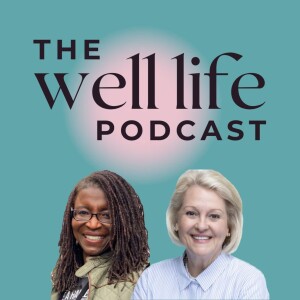
Episode 29 - Transitions, Part 2
The end of life may look different depending on the person’s preferences, needs, or choices. Some people may want to be at home when they die, while others may prefer to seek treatment in a hospital or facility until the very end. Many want to be surrounded by family and friends, but it’s common for some to slip away while their loved ones aren’t in the room.
People who are dying need care in four areas: physical comfort, mental and emotional needs, spiritual needs, and practical tasks. Of course, the family of the dying person needs support as well, with practical tasks and emotional distress.
Mental and emotional distress.
- Someone who is alert near the end of life might understandably feel depressed or anxious.
- It is important to treat emotional pain and suffering.
- The dying person may also have some specific fears and concerns. He or she may fear the unknown, or worry about those left behind.
- Some people are afraid of being alone at the very end.
Spiritual
- spiritual needs may be as important as their physical concerns.
- Spiritual needs may include finding meaning in one's life, ending disagreements with others, or making peace with life circumstances.
- The dying person might find comfort in resolving unsettled issues with friends or family.
- Visits from a social worker or a counselor may help.
- Many people find solace in their faith.
- Others may struggle with their faith or spiritual beliefs. Praying, reading religious texts, or listening to religious music may help.
- The person can also talk with someone from their religious community, such as a minister or priest.
The dying process usually begins well before death takes place. There are often signs that can vary from weeks to months before death.
Physical Changes As the body starts to slow down, a dying person may have the following physical signs:1
- Reduced appetite
- Reduced thirst
- Increased sleeping
- Weight loss
- Mild sense of happiness and well-being (euphoria) due to natural changes in body chemistry2
The reduced appetite and weight loss can be alarming, but it helps to know your loved one isn't suffering in any way by not eating. Their energy needs decrease when they stop regular activities and start sleeping more.
As the body slows down to prepare for death, the metabolism slows down and requires less food. The digestive tract is also less active, which means a dying person won't feel hungry or thirsty.
Advanced care planning
- 5 Wishes
--------------------------------------
For more information about the hosts, please visit their websites and follow them on social media:
Dr. Glenda Shepard - Doctor of Nursing Practice/Advanced Registered Nurse Practitioner/Certified Nutrition Coach/Certified Personal Trainer/Certified Intrinsic Coach
https://www.triumphantwomancoaching.com/
FB - https://www.facebook.com/glenda.shepard1
Robin McCoy - Certified McIntyre Seal Team Six Coach and John Maxwell Team Trainer/Speaker/Coach
https://www.thewellnessfactor.coach/
IG - https://www.instagram.com/RobinRMcCoy
FB - https://www.facebook.com/robin.mccoy1
Produced by KB Podcasts
Music from https://app.soundstripe.com/
No comments yet. Be the first to say something!